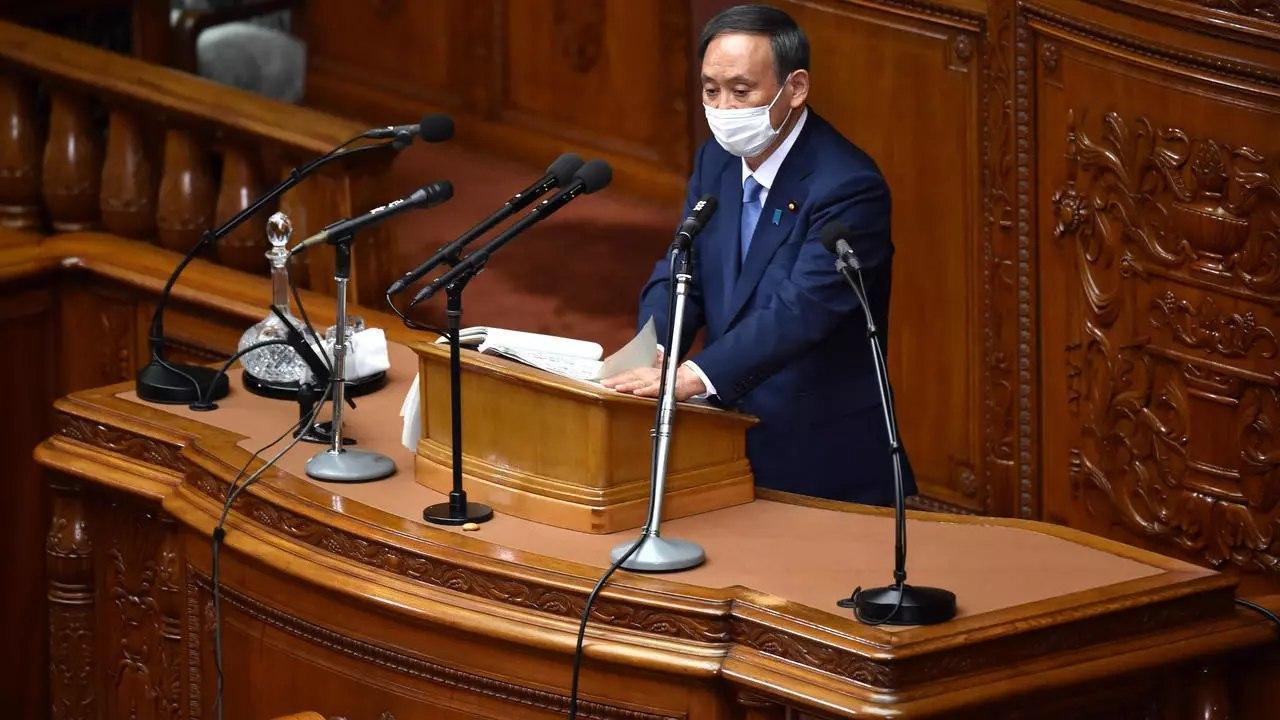TOKYO, Oct. 26 (CNA) - Japan's Prime Minister Yoshihide Suga on Monday (Oct 26) set a 2050 deadline for the world's third-largest economy to become carbon neutral, significantly firming up the country's climate change commitments.
"We will bring the total amount of greenhouse gas (emitted by Japan) to net zero by 2050, meaning carbon neutral," Suga said in his first policy address to parliament since taking office.
"I declare we will aim to realise a decarbonised society," he added, to applause from Diet members.
Tokyo had previously only aimed to achieve carbon neutrality some time in the latter half of the century, a goal criticised by climate activists as vague and unambitious.
The new goal puts Japan on the same timeline as Europe, Britain and a host of smaller nations, and a decade ahead of China, which last month set a 2060 goal.
Suga did not give precise details on how Japan, a country still heavily reliant on coal, will achieve the goal but said technology would be essential.
"The key is innovation," Suga said, citing examples including next-generation solar batteries.
He said Japan would also push the use of renewable energy and nuclear power, stressing that safety would be a priority - a key point in a country that suffered the Fukushima nuclear disaster.
Japan, which is a signatory to the Paris agreement, was the sixth-biggest contributor to global greenhouse emissions in 2017, according to the International Energy Agency.
It has struggled to cut carbon emissions after shutting down nuclear reactors following the 2011 meltdown in Fukushima sparked by a devastating earthquake and tsunami.
Reliance on fossil fuels like coal increased after the Fukushima disaster, as public anger over the accident pushed all of the country's nuclear reactors offline temporarily.





